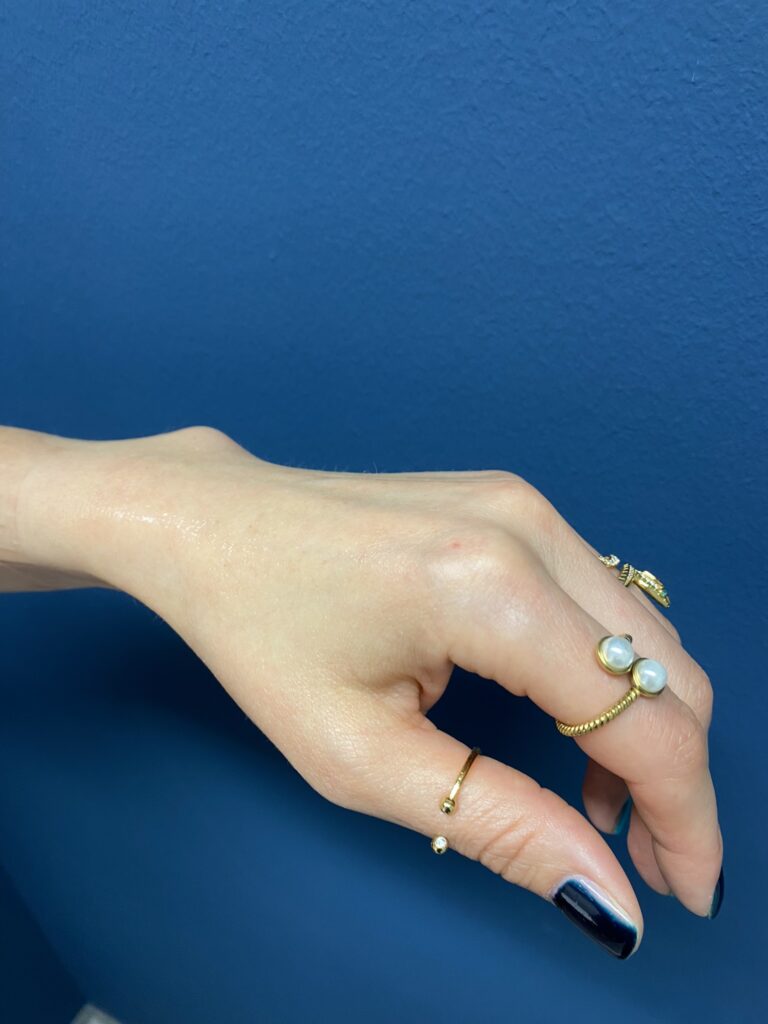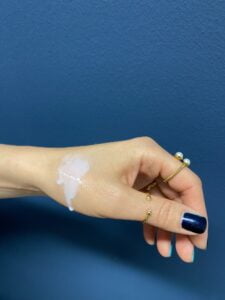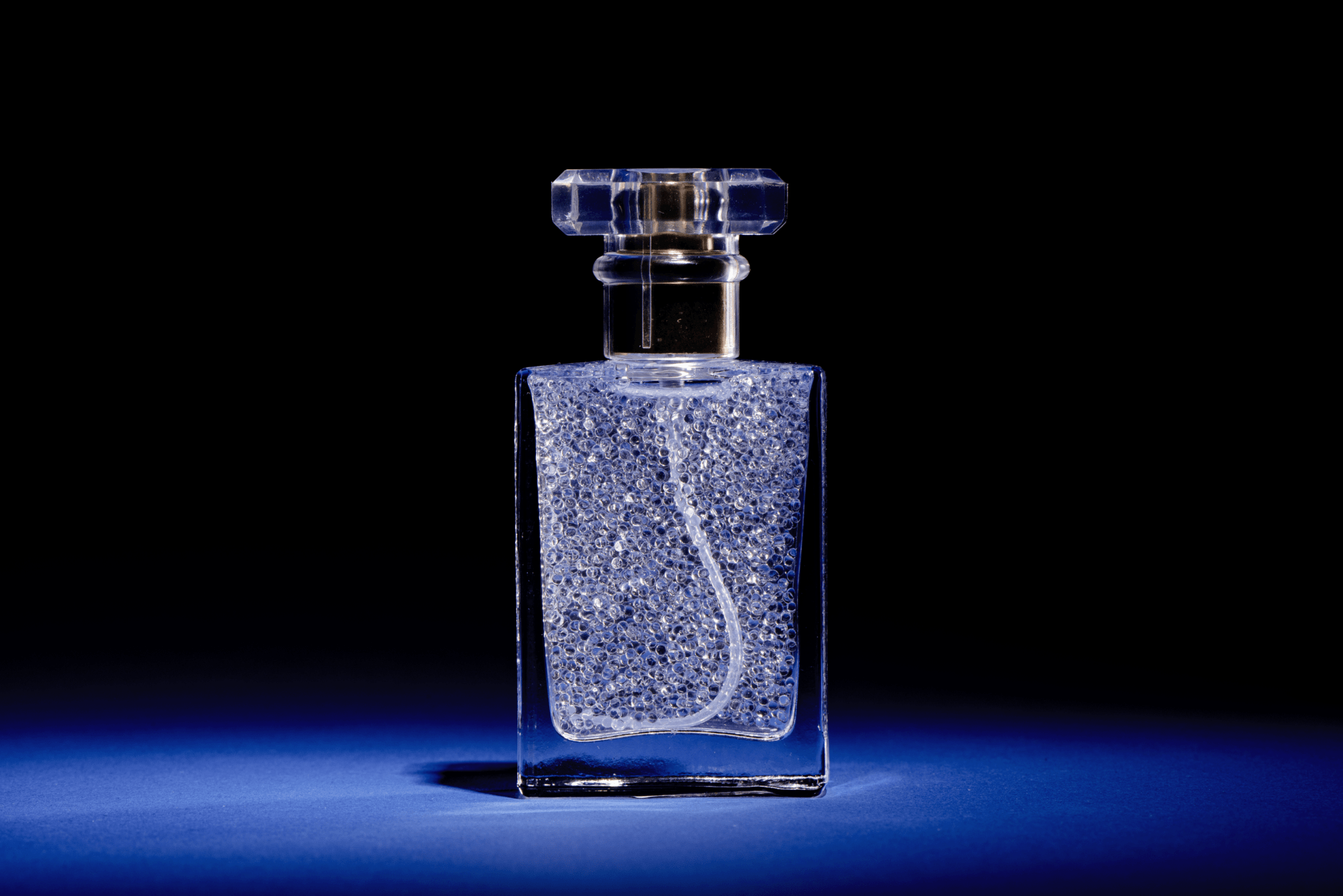In this post, you will learn more about the benefits and disadvantages of water-based perfumes and how Microcaps‘ perfume beads unlock a breakthrough fine fragrance innovation for your brand too.
Perfumes have been an essential part in the lives of human beings for thousands of years. The origins of perfume can be traced back to ancient Egypt, where they were crafted by distilling natural ingredients containing fragrant oils. It is even believed that perfumes were presented as luxurious burial items for affluent individuals within society.
While the last-mentioned is less common today, perfumes do still play a big role in our lives. Today luxury perfumes are booming and the perfume market has experienced a remarkable growth to a total of 33.5 billion USD in 2021 and a projection to reach a total volume of 47.6 billion USD by 2027. With the growing popularity of perfume, there is also a rapidly growing demand for innovative, more sustainable, and healthy perfume products. Particularly for Generation Z consumers, health-benefits and sustainability of perfume-products is essential. Water-based perfumes are one of the cornerstones of this big shift in the perfume market. In the past few years, they emerged from their small niche into the main market and should not be overlooked by any perfume brand.
Water-based perfumes are here to stay
As already mentioned, consumers of both today and tomorrow are asking for products that do not only captivate their senses. They should also align with their values of sustainability and health. As a result of this, well-known brands already launched water-based perfumes and since Dior launched their first ever water-based J’adore Parfum d’Eau, water-based fine fragrance has definitely proven that it needs to be taken seriously on the market. But which advantages and disadvantages do water-based fine fragrances bring?
Pro: Not harmful but soothing to skin
Studies have clearly shown that ethanol dries out our skin and hair, is irritating to sensitive skin and lowers its lipid barriers. Furthermore, a large number of consumers react allergically to the application of alcohol to their skin or do prefer an ethanol-free scent for religious reasons.
Since water-based perfume does not need any ethanol in the formulation, it offers a clear advantage in this regard. It is accessible for everyone and can be applied to both skin and hair without risking any harm. Additionally, consumers can now enjoy their preferred fine fragrance product on both their skin and hair without concerns of skin irritation or dryness of the hair.
Pro: More versatile scent profiles
Another notable benefit of water-based perfumes is their more versatile scent profile. Since ethanol is highly volatile, ethanol-based perfumes are often very heavy on top notes. They need time to “burn-off” until their true scent is smellable after application. Water-based fine fragrances typically possess less volatile top notes and deliver more soft heart and base notes. This characteristic leads to a well-balanced scent that cannot be replicated by ethanol-based perfumes.
Current Con: Sticky, oily and milky
However, water-based perfumes currently also have some downsides: Many water-based perfumes on the market rely on an emulsion formulation. This leads to a solution that delivers a good scent performance but often feels sticky and oily on the skin and especially on hair. Furthermore, those products tend to appear milky as is clearly visible on the picture in the comparison below.


Microcaps transparent water-based perfume with a fresh skin feel (left) vs. a nano-emulsion based perfume (right) that is milky on skin
This leads to a current situation where perfume consumers have to take a decision between a potentially health-harming ethanol-based perfume and a water-based product that does not meet their full expectations regarding skin feel and appearance.
Perfume beads: A solution without compromises regarding performance on skin and visuals
Microcaps believes that water-based perfumes will play a major role in the future of perfume. However, they should not come with any compromises for consumers. This is why our formulation team developed a patented technology that harnesses the benefits of water-based perfumes. At the same time it eliminates the current downsides. Our perfume beads enable you to move forward from emulsions and to directly encapsulate your signature fragrance oils into natural perfume beads. These alginate beads are then put in a water-based solution and filled in your perfume flasks. The final product is water-based, natural and comes with a unique, mesmerizing look.
The perfume beads break in the nozzle as soon as the consumers spray the perfume on their skin. This results in a full fragrance burst on every application. The applied water-based perfume feels refreshing, soothing and comes without the downsides of conventional water-based fine fragrances.
The video above shows how Microcaps‘ perfume beads break in the nozzle, resulting in a delicate mist upon spraying
Market research data shows great feedback
Our market research in both retail- and luxury perfumeries showed great results. Over 92% of perfumeries think this new water-based perfume technology will be successful on the market. 100% of the questioned perfumeries would like to see a perfume based on perfume beads in their shelves and 92% like the sensory experience.
Conclusion: Water-based perfume does not ask for compromises
The perfume market clearly shows that it is hungry for new innovations. However, consumers of today have high expectations when it comes to the quality of their chosen products. Sustainability and health will become a larger topic in fine fragrance too. Therefore, water-based perfumes will take larger market shares in the growing perfume market. Consumers will choose more healthy, sustainable products which do not require them to make compromises. Microcaps‘ perfume beads can help perfume brands to exceed these high expectations with a fresh and clever innovation. It mesmerizes in the shelves, feels fresh on the skin and does no harm to skin and hair.

